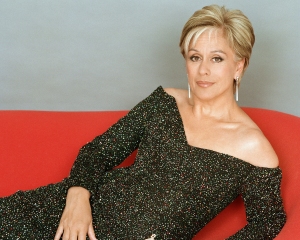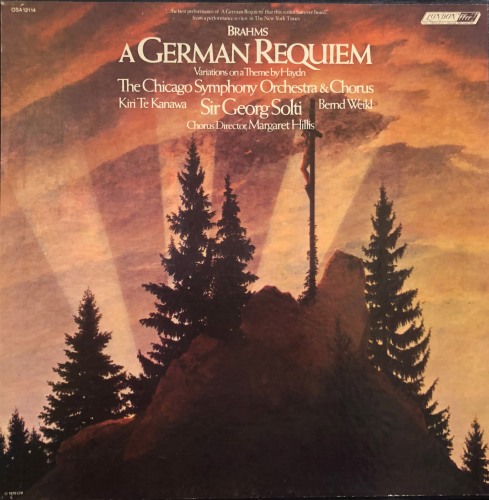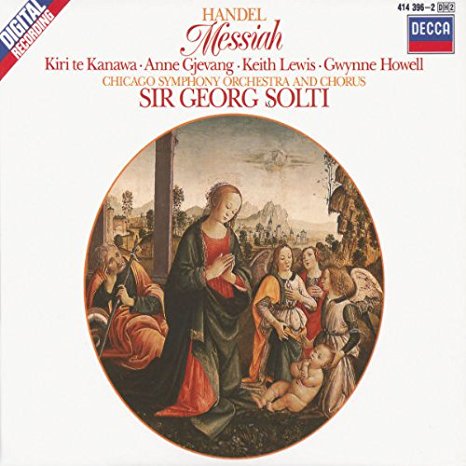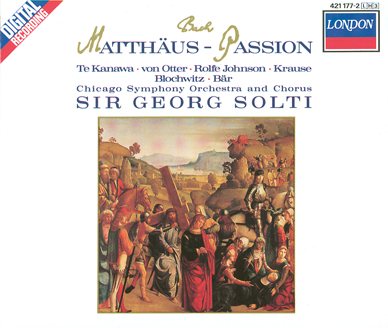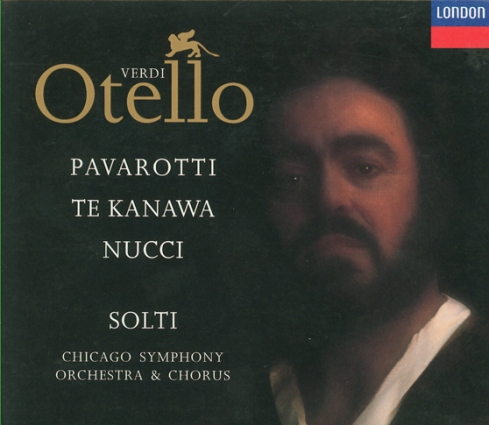You are currently browsing the tag archive for the ‘Medinah Temple’ tag.
Wishing a wonderfully happy ninetieth birthday to the legendary American mezzo-soprano Marilyn Horne!
Over the course of nearly forty years—between 1965 and 2002—Horne has appeared as soloist with the Chicago Symphony Orchestra on a number of occasions in concert and on recording, indicated below:
September 23 and 24, 1965, Orchestra Hall
BERLIOZ The Damnation of Faust, Op. 24
Marilyn Horne, mezzo-soprano
Richard Verreau, tenor
Ezio Flagello, bass
Chicago Symphony Chorus
Margaret Hillis, director
Chicago Children’s Choir
Christopher Moore, director
Jean Martinon, conductor
June 2, 1967, Orchestra Hall
ROSSINI The Italian Girl in Algiers
Isabella Marilyn Horne, soprano
Mustafa Ezio Flagello, bass
Taddeo Theodor Uppman, baritone
Lindoro Ken Remo, tenor
Elvira Teresa Orantes, soprano
Zulma Carol Cornelisen, mezzo-soprano
Haly Charles Van Tasssel, bass-baritone
Chicago Symphony Chorus
Ronald Schweitzer, assistant director
Henry Lewis, conductor
July 9, 1983, Ravinia Festival
TCHAIKOVSKY Symphony No. 4 in F Minor, Op. 36
ROSSINI Non temer d’un basso affetto from The Siege of Corinth
ROSSINI Overture to The Silken Ladder
ROSSINI Assisa a piè d’un salice from Otello
ROSSINI Overture to Semiramide
ROSSINI Mura felici from The Lady of the Lake
Marilyn Horne, mezzo-soprano
James Levine, conductor
August 18, 1984, Ravinia Festival
MAHLER Das Lied von der Erde
Marilyn Horne, mezzo-soprano
James McCracken, tenor
James Conlon, conductor
July 20, 1986, Ravinia Festival
ROSSINI Overture to William Tell
ROSSINI Oh! patria! . . . Tu che accendi . . . Di tanti palpiti from Tancredi
ROSSINI Overture to The Silken Ladder
ROSSINI Da te spero, oh ciel clemente from Zelmira
ROSSINI Overture to The Italian Girl in Algiers
ROSSINI Deh, lasciate . . . Beviam, tocchiamo a gara from The Silken Ladder
SAINT-SAËNS Printemps qui commence from Samson and Delilah
THOMAS Overture to Mignon
THOMAS C’est moi, j’ai tout brise . . . Me voici dans son boudoir from Mignon
MASSENET Meditation from Thaïs
Samuel Magad, violin
GOUNOD Ou suis-je? O ma lyre immortelle from Sapho
COPLAND Hoedown from Rodeo
NILES Go ’way from my window
FOSTER/Cullen If you’ve only got a moustache
TRADITIONAL/Copland At the River
Marilyn Horne, mezzo-soprano
Henry Lewis, conductor
July 4, 1992, Ravinia Festival
PROKOFIEV Symphony No. 1 in D Major, Op. 25 (Classical)
MENDELSSOHN Violin Concerto in E Minor, Op. 64
Sarah Chang, violin
COHAN/Davis You’re a Grand Old Flag
TRADITIONAL/Davis Shenandoah
TRADITIONAL/Matthews Billy Boy
FOSTER/Tunick Beautiful Dreamer
FOSTER/Cullen If you’ve only got a moustache
FOSTER/Matthews I Dream of Jeannie
FOSTER/Cullen Camptown Races
TRADITIONAL/Davis I’ve Just Come from the Fountain
MALOTTE/Davis The Lord’s Prayer
TRADITIONAL/Matthews When Johnny Comes Marching Home
BRYAN-PIANTADOSE/Davis I Didn’t Raise My Boy to Be a Soldier
TRADITIONAL/Davis Battle Hymn of the Republic
Marilyn Horne, mezzo-soprano
Chicago Symphony Chorus
Margaret Hillis, director
Cheryl Frazes Hill, assistant director
James Levine, conductor
Radio broadcast recordings of Camptown Races and I’ve Just Come from the Fountain were released in 2008 on Chicago Symphony Chorus: A Fiftieth Anniversary Celebration (From the Archives, vol. 22).
July 28, 2002, Ravinia Festival
Music of Rodgers and Hammerstein
Selections from Oklahoma!, Carousel, South Pacific, Victory at Sea, The King and I, and The Sound of Music
Sylvia McNair, soprano
Marilyn Horne, mezzo-soprano
Rodney Gilfry, baritone
John Raitt, baritone
John Mauceri, conductor
Horne also commercially recorded with Orchestra and Chorus, on two notable occasions:
MAHLER Symphony No. 3 in D Minor
Marilyn Horne, mezzo-soprano
Women of the Chicago Symphony Chorus
Margaret Hillis, director
Glen Ellyn Children’s Chorus
Doreen Rao, director
James Levine, conductor
Recorded by RCA on July 21, 22, and 23, 1975, in Medinah Temple. The recording was produced by Thomas Z. Shepard and Jay David Saks, and Paul Goodman was the recording engineer. The Orchestra and Chorus also performed the work at the Ravinia Festival on July 13, 1975; Beverly Wolff was soloist.
MAHLER Symphony No. 2 in C Minor (Resurrection)
Carol Neblett, soprano
Marilyn Horne, mezzo-soprano
Chicago Symphony Chorus
Margaret Hillis, director
Claudio Abbado, conductor
Recorded by Deutsche Grammophon on February 13 and 16, 1976, in Medinah Temple. The recording was produced by Rainer Brock, and Heinz Wildhagen was the balance engineer. The Orchestra and Chorus also performed the work in Orchestra Hall on February 12 and 14, 1976; Neblett and Claudine Carlson were soloists.
On November 28, 1999, Horne and her longtime collaborator Martin Katz gave a recital at Orchestra Hall. Just before the final encores, she announced from the stage, “Today I sing my last classical recital. . . . I’ll still be around from time to time [but] one thing you cannot do is stop the march of time.”
“Perhaps not,” wrote John von Rhein in the Chicago Tribune. “But time has been on the side of this great and treasurable artist. She has sung everything she ever wanted to sing in every major opera house and concert hall. She has been at the forefront of the modern Handel and Rossini revivals. She has long held the mantle of the world’s foremost mistress of bel canto. Her place in history as one of the all-time great singers is secure.”
Happy, happy birthday!
This article also appears here.
Beethoven’s Fourth Symphony—according to Theodore Thomas, the Chicago Symphony Orchestra‘s founder and first music director, in Talks About Beethoven’s Symphonies—is “a work as full of beauties, novel of their kind, as the Eroica, but expressing no worldly program; singing instead the songs of nature—the music of the soul. . . . In consequence, he has given us, in the Fourth Symphony, a song of beauty such as no one else has ever written, presenting absolute novelty of color and creating an atmosphere in music justly termed ‘romantic,’ a romanticism parallel to that of Schiller in literature.”
“Generations of music lovers have described—and sometimes dismissed—Beethoven’s even-numbered symphonies as lyrical and relaxed compared to their spunky, coltish, odd-numbered neighbors. The Fourth, in B-flat major, has suffered from that fate perhaps more than any,” writes CSOA scholar-in-residence and program annotator Phillip Huscher. “Schumann was perhaps the first musician to warn us not to overlook the Fourth’s own special qualities: ‘Do not illustrate his genius with the Ninth Symphony alone, no matter how great its audacity and scope, never uttered in any tongue. You can do as much with his First Symphony, or with the Greek-like slender one in B-flat major!’”
Founder and first music director Theodore Thomas first led the Chicago Orchestra in Beethoven’s Fourth Symphony on March 17 and 18, 1893, at the Auditorium Theatre.
Sir Georg Solti and the Chicago Symphony Orchestra and Chorus first recorded Beethoven’s nine symphonies between May 1972 and September 1974 for London Records. The recordings were ultimately released as a set (along with three overtures: Egmont, Coriolan, and Leonore no. 3); that set won the 1975 Grammy Award for Classical Album of the Year from the National Academy of Recording Arts and Sciences. The Fourth Symphony was recorded at Medinah Temple on May 13, 1974. Ray Minshull was the recording producer, and Kenneth Wilkinson and James Lock were the balance engineers.
Between September 1986 and January 1990, Solti and the Orchestra and Chorus recorded Beethoven’s complete symphonies a second time, again for London Records; and again, the recordings were ultimately released as a set (along with two overtures: Egmont and Leonore no. 3). The Fourth Symphony was recorded in Orchestra Hall on September 21 and 22, 1987. Michael Haas was the recording producer and James Lock was the balance engineer.
This article also appears here.
Beethoven’s Ninth Symphony—according to Frederick Stock, the Chicago Symphony Orchestra‘s second music director, in Talks About Beethoven’s Symphonies—is “dedicated to all Mankind. Embracing all phases of human emotion, monumental in scope and outline, colossal in its intellectual grasp and emotional eloquence, the Ninth stands today as the greatest of all symphonies.”

Stock continues: “The Ninth is unquestionably the greatest of all symphonies not only because it is the final résumé of all of Beethoven’s achievements, colossal as they are even without the Ninth, but also because it voices the message of one who had risen beyond himself, beyond the world and the time in which he lived. The Ninth is Beethoven, the psychic and spiritual significance of his life.
“In the first movement we find the bitter struggle he waged against life’s adversities, his failing health, his deafness, his loneliness. The Scherzo depicts the quest for worldly joy; the third movement, melancholy reflection, longing—resignation. The last movement, the ‘Ode to Joy,’ is dedicated to all Mankind.”
“There’s something astonishing about a deaf composer choosing to open a symphony with music that reveals, like no other music before it, the very essence of sound emerging from silence,” writes CSOA scholar-in-residence and program annotator Phillip Huscher. “The famous pianissimo opening—sixteen measures with no secure sense of key or rhythm—does not so much depict the journey from darkness to light, or from chaos to order, as the birth of sound itself or the creation of a musical idea. It is as if the challenges of Beethoven’s daily existence—the struggle to compose music, his difficulty in communicating, the frustration of remembering what it was like to hear—have been made real in a single page of music.”
Founder and first music director Theodore Thomas first led the Chicago Orchestra in Beethoven’s Ninth Symphony on December 16 and 17, 1892, at the Auditorium Theatre. The soloists were Minnie Fish, Minna Brentano, Charles A. Knorr, and George E. Holmes, along with the Apollo Chorus (prepared by William L. Tomlins).
Sixth music director Fritz Reiner led the Orchestra’s first recording of Beethoven’s Ninth Symphony on May 1 and 2, 1961, in Orchestra Hall. Phyllis Curtin, Florence Kopleff, John McCollum, and Donald Gramm were the soloists, and the Chicago Symphony Chorus was prepared by Margaret Hillis. For RCA, Richard Mohr was the producer and Lewis Layton was the recording engineer.
Sir Georg Solti and the Chicago Symphony Orchestra and Chorus first recorded Beethoven’s nine symphonies between May 1972 and September 1974 for London Records. The recordings were ultimately released as a set (along with three overtures: Egmont, Coriolan, and Leonore no. 3); that set won the 1975 Grammy Award for Classical Album of the Year from the National Academy of Recording Arts and Sciences. The Ninth Symphony was recorded at the Krannert Center at the University of Illinois in Urbana on May 15 and 16, and June 26, 1972. Pilar Lorengar, Yvonne Minton, Stuart Burrows, and Martti Talvela were the soloists, and the Chicago Symphony Chorus was prepared by Margaret Hillis. David Harvey was the recording producer, and Gordon Parry, Kenneth Wilkinson, and Peter van Biene were the balance engineers.
Between September 1986 and January 1990, Solti and the Orchestra and Chorus recorded the complete Beethoven symphonies a second time, again for London Records; and again, the recordings were ultimately released as a set (along with two overtures: Egmont and Leonore no. 3). The Ninth Symphony was recorded in Medinah Temple on September 29 and 30, 1986. Michael Haas was the recording producer, John Pellowe the balance engineer, and Neil Hutchinson the tape editor. Jessye Norman, Reinhild Runkel, Robert Schunk, and Hans Sotin were soloists, and Margaret Hillis prepared the Chorus. The release won the 1987 Grammy Award for Best Orchestral Performance from the National Academy of Recording Arts and Sciences.
On September 18, 20, 21, and 23, 2014, Riccardo Muti led the Chicago Symphony Orchestra and Chorus in Beethoven’s Ninth Symphony in Orchestra Hall. Camilla Nylund, Ekaterina Gubanova, Matthew Polenzani (September 18), William Burden (September 20, 21, and 23), and Eric Owens were the soloists, and the Chorus was prepared by Duain Wolfe. The performance on September 18 was recorded for YouTube and is available in the link below.
This article also appears here.
“We know with certainty that seldom was a work of this kind brought to completion under more adverse conditions than the Eighth Symphony,” wrote Frederick Stock, the Chicago Symphony Orchestra‘s second music director, in Talks About Beethoven’s Symphonies. The year 1812 was challenging for Beethoven, as he endured “domestic difficulties of the most embarrassing and annoying kind . . . added to this the agony of his ever-increasing deafness, and life’s burden must have been unbearable. And yet the general character of the F major symphony is added proof that adversities, no matter how severe, could not overwhelm him or daunt his spirt, since the temper and color of this work show no trace of suffering. . . . the Eighth Symphony [is] the work of a genius rising above his world, reaching beyond his own time, and that this work was only a stepping-stone for much greater things to come.”
The Eighth Symphony “was misunderstood from the start,” writes CSOA scholar-in-residence and program annotator Phillip Huscher. “The Eighth is a throwback to an easier time. The novelty of this symphony, however, is that it manages to do new and unusual things without ever waving the flag of controversy.”
Founder and first music director Theodore Thomas first led the Chicago Orchestra in Beethoven’s Eighth Symphony on March 25 and 26, 1892, at the Auditorium Theatre.
Sir Georg Solti and the Chicago Symphony Orchestra and Chorus first recorded Beethoven’s nine symphonies between May 1972 and September 1974 for London Records. The recordings were ultimately released as a set (along with three overtures: Egmont, Coriolan, and Leonore no. 3); that set won the 1975 Grammy Award for Classical Album of the Year from the National Academy of Recording Arts and Sciences. The Eighth Symphony was recorded at Medinah Temple on November 6 and 9, 1973. Ray Minshull was the recording producer, and Kenneth Wilkinson and James Lock were the balance engineers.
Between September 1986 and January 1990, Solti and the Orchestra and Chorus recorded the complete Beethoven symphonies a second time, again for London Records; and again, the recordings were ultimately released as a set (along with two overtures: Egmont and Leonore no. 3). The Eighth Symphony was recorded in Orchestra Hall on October 17 and 18, 1988. Michael Haas was the recording producer and Stanley Goodall was the balance engineer.

